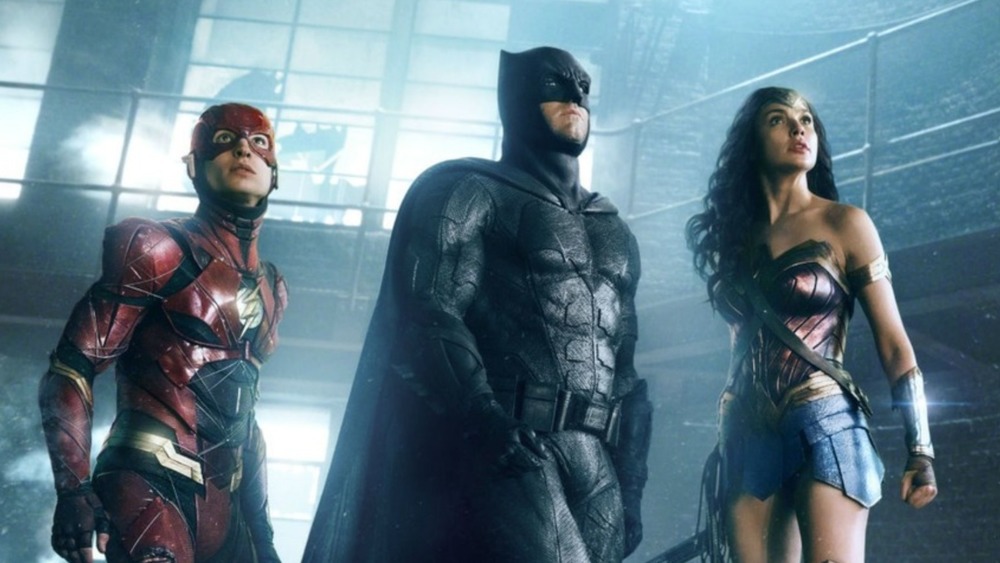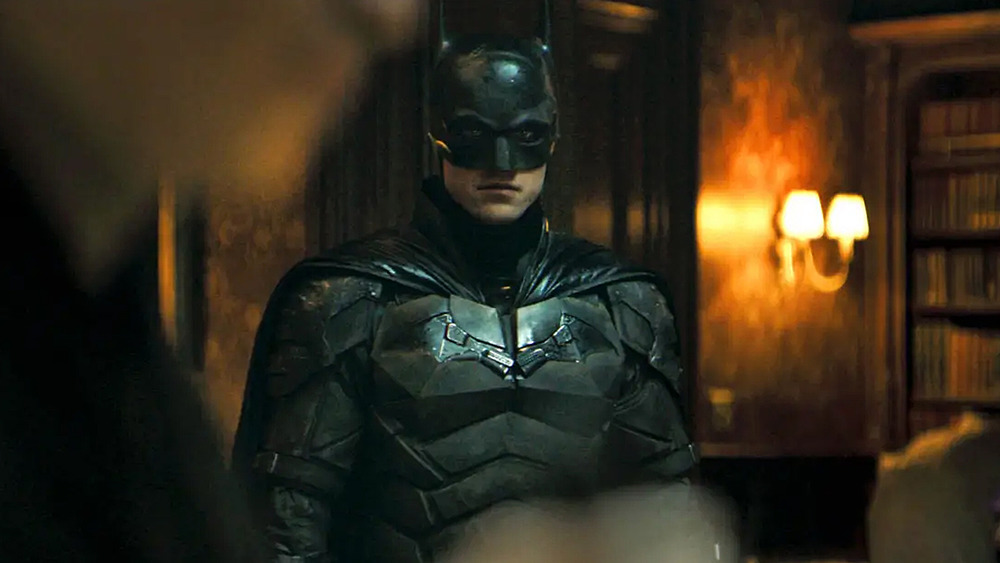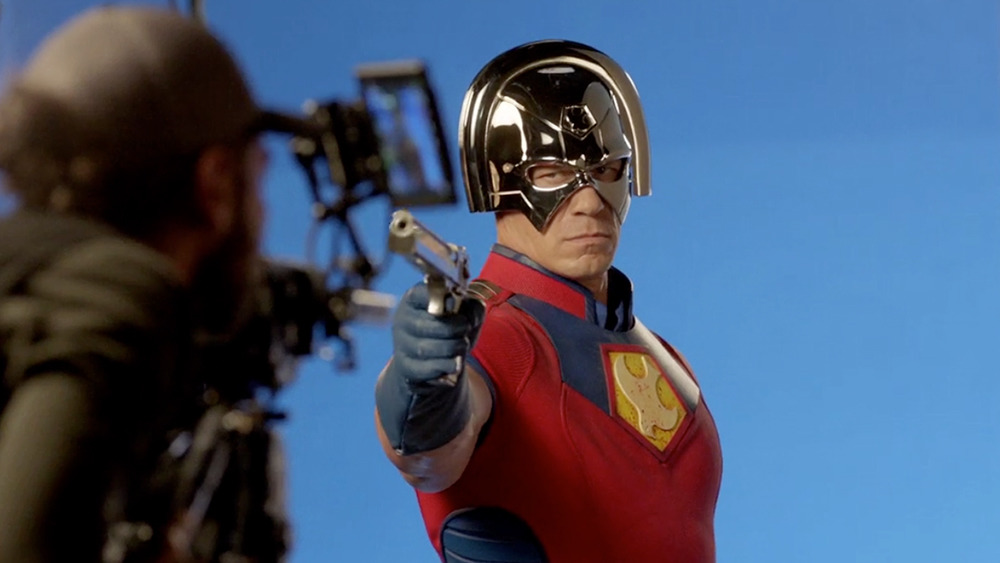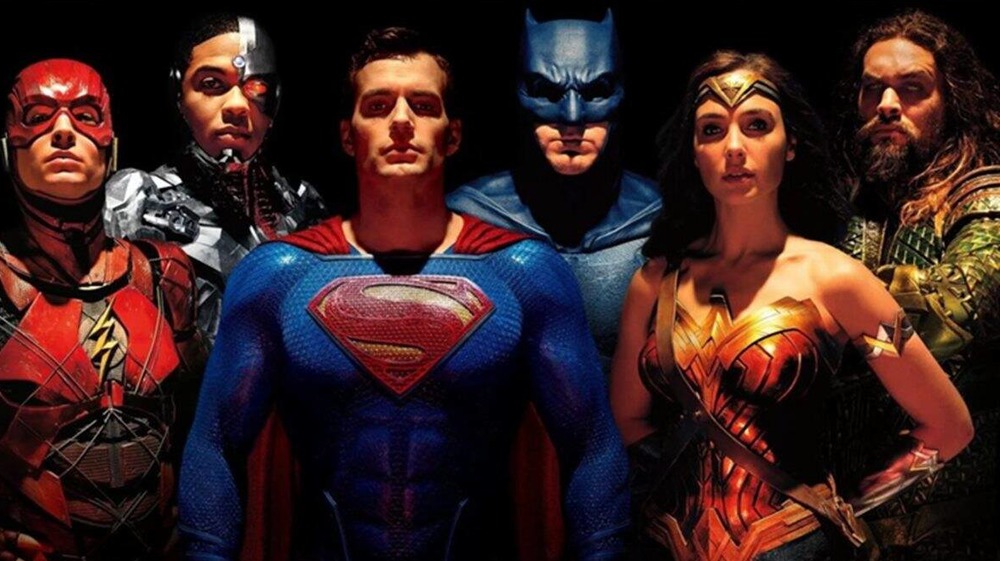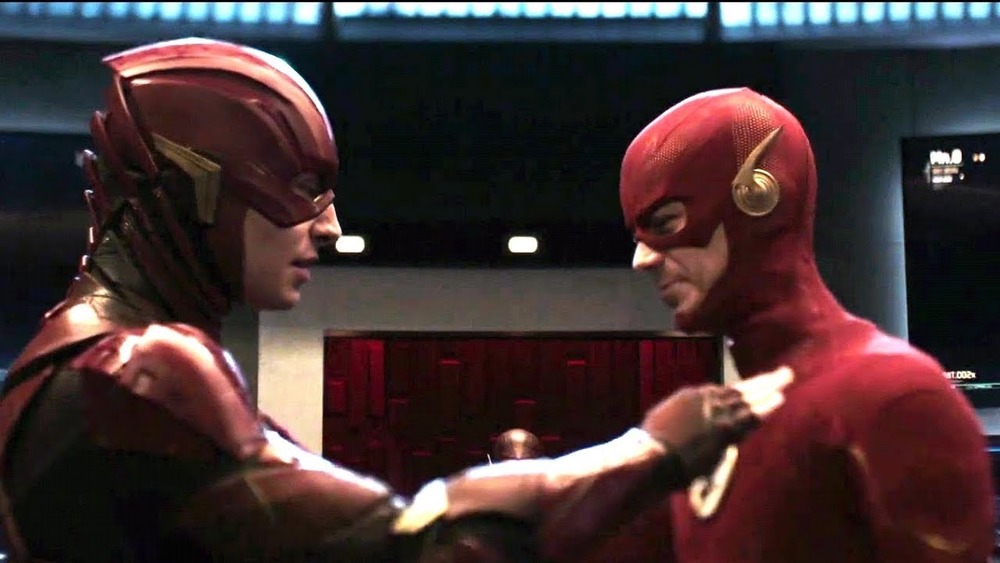DC Has Massive Plans For Its Superhero Movies Starting In 2022
Did you enjoy watching Wonder Woman 1984 over Christmas weekend, whether that was in theaters or streaming at home? Either way, there's a lot more where that came from.
In an interview with The New York Times, DC Films president Walter Hamada laid out the most detailed and expansive vision yet seen for the future of his company's superheroes on screen. Those plans extend far beyond Wonder Woman 3, which Warner Bros. chairman Toby Emmerich announced was being fast-tracked this weekend after the success of Wonder Woman 1984. They include as many as six films per year beginning in 2022, alongside new streaming series for HBO Max, the streaming service owned by DC's parent company WarnerMedia. As the Times points out, this represents a massive uptick in production for a company that released just one feature film in 2018, Aquaman, and two in 2019, Shazam! and Joker.
DC Films plans to make movies both for theaters and for HBO Max
According to Hamada's Times interview, "The most expensive DC movies (up to four a year, starting in 2022) are designed for release in theaters." There are two big pieces of news here — the number of projects and the fact that they're "designed for release in theaters."
That phrasing does not appear to be a direct quote from Hamada, however. The choice of words seems like it could be read both ways in the wake of backlash from theaters and creatives after Warner Bros.' announcement that its 2021 movies would be released in theaters and on HBO Max simultaneously. DC Films has plans to make movies that will be shown in theaters, but there's a yawning chasm of uncertainty between "are designed for" and "will be."
Assuming it does work out and DC Films gets its big tentpole projects into theaters, there will still be plenty of new content to keep streaming subscribers occupied. The intention is for DC to release up to two smaller superhero movies on HBO Max each year, with the Times piece namedropping Batgirl and Static Shock as examples of the "riskier characters" these projects might focus on.
HBO Max will be a home for original and spin-off series
Debuting smaller films on HBO Max is just one part of DC's plans for the streaming service. In addition to already-announced series focusing on the Green Lantern Corps, Justice League Dark, and a superhero high school, the plan going forward is to use its big movies as launch pads for a whole host of other series that will either expand the adventures of hit characters or dig into the corners of the on-screen universe that the films don't have time to explore.
"With every movie that we're looking at now, we are thinking, 'What's the potential Max spinoff?'" Hamada told the Times. Though it hadn't been stated quite so plainly, fans have already gotten hints of how this strategy will play out. Two of the films DC currently has in the works already have tie-in series being produced for HBO Max — a police procedural set in the same Gotham City as Matt Reeves' The Batman and a John Cena-starring Peacemaker series about his character from James Gunn's The Suicide Squad.
How will DC keep track of all these characters?
"But wait," you might say, holding up the fingers on which you've been counting all these potential projects. "Are these going to be connected together? How are all these projects and all these characters going to fit into one on-screen universe?"
Short answer: they won't, technically. Instead, DC Films will silo off various characters into their own parallel pocket realities within the larger multiverse. Gal Gadot's Wonder Woman, the article explains, will inhabit Earth 1, presumably along with the other heroes she appeared alongside in Justice League. Robert Pattinson's Batman will be a denizen of Earth 2. The Flash solo movie, scheduled to be released in 2022, will connect multiple universes, including those of the Batmen played by Ben Affleck and Michael Keaton.
"I don't think anyone has else has ever attempted this," Hamada said. "But audiences are sophisticated enough to understand it. If we make good movies, they will go with it." Technically he's right; audiences haven't seen this kind of cross-franchise, multi-property differentiation on the big screen in live action... at least, not yet.
Multiverses are having a moment
DC has already brought the concept of a multiverse to television with its Arrowverse, which included a cameo from the Earth 1 movie version of the Flash, played by Ezra Miller. Sony's animated Spider-Man: Into the Spider-Verse played with the concept of multiple heroes from multiple versions of Earth, and the third Marvel Cinematic Universe Spider-Man movie looks set to do the same. Plus, Marvel has its own Doctor Strange in the Multiverse of Madness scheduled for release in 2022, and may begin dipping its toes into the multiversal waters as soon as January 2021, when WandaVision debuts on Disney+.
Regardless of how the various studios use the device of the multiverse to sort and catalogue their ever-expanding portfolios of comic book characters, there's one thing it calls to mind for fans of DC Comics: its eventual end. It took DC 47 years to go from the introduction of Superman in Action Comics #1 to the multiverse ending crossover event Crisis on Infinite Earths. It took the television Arrowverse seven years to unveil its Crisis on Infinite Earths crossover. How long will it take DC's newest cinematic plans to reach that point? Time will tell.
